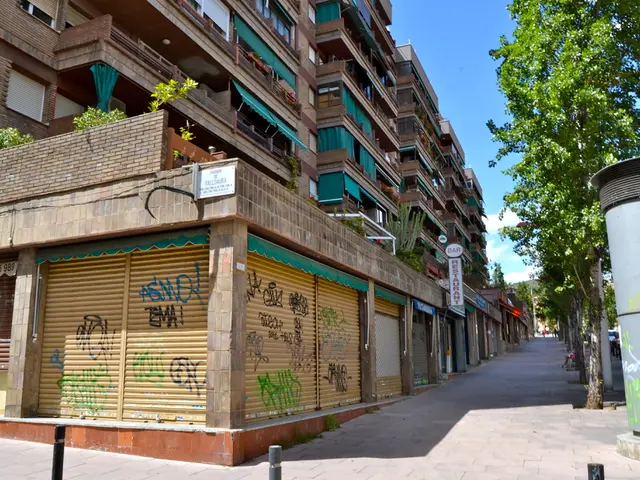Li-Cycle's pursuit for the recycling of lithium-ion batteries concludes in financial insolvency
Li-Cycle, a Canadian battery recycling startup that went public in 2021, is currently in bankruptcy proceedings and seeking buyers. Founded in 2016 with the aim of commercializing breakthrough technologies in the battery recycling sector, the company has faced significant challenges.
In its early years, Li-Cycle was funded by venture capital, with a focus on quickly commercially viable solutions. One of its engineers developed a groundbreaking technique for shredding whole lithium-ion battery packs while submerged in liquid. This method prevents fires and saves effort compared to traditional methods, making it a promising solution for the battery recycling industry.
However, the path to profitability has proven to be elusive. A potential buyer would need to spend a few hundred million dollars more to fully recycle batteries, and it's uncertain whether they would make a profit doing so. This uncertainty underscores the challenges faced by the fledgling battery recycling industry.
The collapse of Li-Cycle also underscores the current disruption in the North American EV supply chain, which has been exacerbated by the Trump administration.
Glencore, a multinational mining and commodities company, has entered the picture. They have made a "stalking horse" offer of $40 million for most of Li-Cycle's holdings, which includes five battery shredding plants and a massive unfinished recycling center in Western New York. Glencore previously invested $275 million in Li-Cycle, but they will not recoup this investment.
A potential deal with Glencore did not materialize, and a Canadian bankruptcy court appointed Alvarez & Marsal Canada Securities to oversee the sale of Li-Cycle's assets. Alvarez & Marsal pitch Li-Cycle as a compelling investment opportunity, given its position to benefit from the rapid growth in the battery materials and lithium-ion battery recycling market.
Prospective buyers have until early June to state their intent. It remains to be seen who will step forward and whether Li-Cycle's innovative technology can find a home in a profitable enterprise.
The collapse of Li-Cycle is significant because it was founded during a period of high optimism for the battery recycling industry. The industry was seen as a means to transition to EVs while minimizing mining and reduce dependence on China. However, the reality has proven to be more complex, with the battery recycling sector facing significant struggles.
As the world moves towards a more sustainable future, the challenges faced by Li-Cycle serve as a reminder that the path to a cleaner, greener future is not without its obstacles. The battery recycling industry will need to overcome these challenges to realise its potential as a key player in the transition to electric vehicles.
Read also:
- Transforming Digital Inventories in the Food Industry: A Comprehensive Guide for Food Businesses
- Munich Airport Unveils Its New Electrical Vehicle Charging Parksite
- Vehicle electrification and bidirectional charging technologies could potentially reduce EU energy expenses by a staggering €22 billion annually by the year 2040.
- Rapid Construction of Rajasthan's 435 Megawatt Solar Power Plant in Eight Months Reduces Carbon Dioxide Emissions by Over 700,000 Tons







